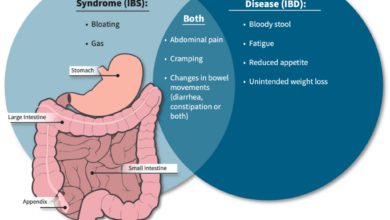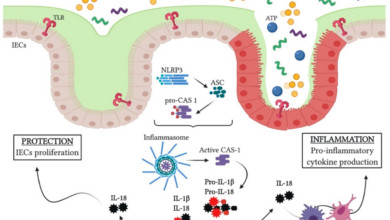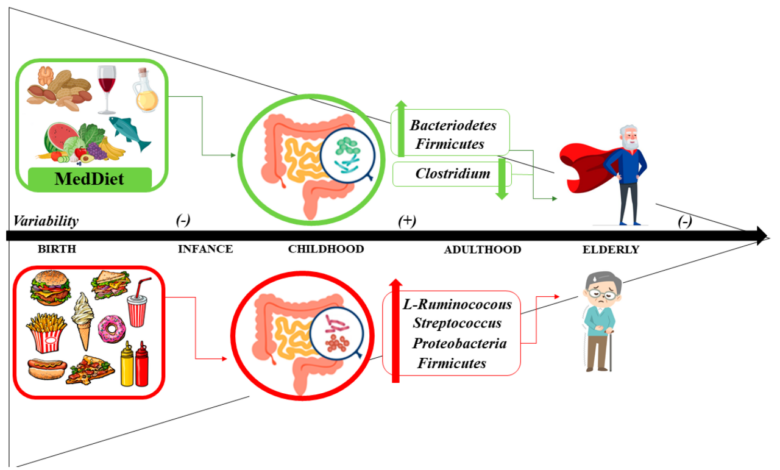
Study Reveals Mediterranean Diet Boosts Gut & Memory
Study reveals Mediterranean diet can boost your gut and sharpen memory – who knew a simple dietary change could have such a profound impact? This isn’t just about feeling healthier; we’re talking about potentially sharper minds and improved cognitive function. Recent research is uncovering the fascinating connection between what we eat, the health of our gut microbiome, and our brainpower.
The Mediterranean diet, rich in fruits, vegetables, healthy fats, and whole grains, is emerging as a star player in this exciting field of research, promising a delicious path to better brain health.
For years, the Mediterranean diet has been praised for its heart-healthy benefits. Now, the spotlight is shifting to its potential to enhance cognitive function, potentially even warding off age-related cognitive decline. The key lies in the intricate relationship between our gut and our brain, a connection often referred to as the gut-brain axis. The Mediterranean diet’s unique blend of nutrients appears to nurture a thriving gut microbiome, leading to a cascade of positive effects that reach all the way to our brains.
This post will delve into the science behind this remarkable connection, exploring how the diet impacts gut bacteria, the role of specific nutrients, and the implications for our overall well-being.
The Mediterranean Diet and Cognitive Function
The Mediterranean diet, inspired by the traditional eating habits of people in countries bordering the Mediterranean Sea, is more than just a diet; it’s a lifestyle. Characterized by its abundance of fruits, vegetables, whole grains, legumes, nuts, seeds, and olive oil, it emphasizes healthy fats and minimizes processed foods, red meat, and saturated fats. This dietary pattern has garnered significant attention for its potential benefits across various health aspects, including cognitive function.A growing body of research strongly suggests a positive correlation between adherence to a Mediterranean diet and improved cognitive health.
Numerous studies have demonstrated its association with a reduced risk of age-related cognitive decline, Alzheimer’s disease, and other forms of dementia. For instance, the PREDIMED study, a large randomized trial, showed that participants following a Mediterranean diet experienced a significant reduction in the risk of cardiovascular disease, a major risk factor for cognitive impairment. These findings highlight the crucial role nutrition plays in maintaining optimal brain function throughout life.
The Gut-Brain Axis and Cognitive Health
The emerging field of research on the gut-brain axis underscores the intricate connection between the gastrointestinal system and the brain. This bidirectional communication pathway involves the vagus nerve, immune system, and the gut microbiome – the vast community of microorganisms residing in our intestines. An increasing number of studies indicate that the composition and diversity of the gut microbiome can significantly influence brain function, impacting mood, behavior, and cognitive abilities, including memory.
A healthy gut microbiome, often fostered by a diet rich in fiber and diverse plant-based foods like those found in the Mediterranean diet, may contribute to improved communication along the gut-brain axis, potentially leading to enhanced cognitive performance. For example, studies have shown that individuals with a more diverse gut microbiome tend to exhibit better cognitive function and reduced risk of neurodegenerative diseases.
Gut Microbiome and the Mediterranean Diet: Study Reveals Mediterranean Diet Can Boost Your Gut And Sharpen Memory
The Mediterranean diet, renowned for its health benefits, is increasingly recognized for its profound impact on the gut microbiome, the complex community of microorganisms residing in our digestive tract. This intricate ecosystem plays a crucial role in various aspects of our health, including cognitive function, immune response, and even mood regulation. Understanding how the Mediterranean diet shapes this microbiome is key to unlocking its full potential for promoting overall well-being.The Mediterranean diet’s influence on gut microbiota composition and diversity is multifaceted.
Studies comparing individuals adhering to a Mediterranean diet with those following other dietary patterns reveal significant differences in their gut microbial profiles. Specifically, the Mediterranean diet is associated with a higher abundance of beneficial bacteria, such as those belonging to the genera
- Bifidobacterium* and
- Lactobacillus*, known for their role in maintaining gut barrier integrity and immune function. Conversely, it’s linked to lower levels of potentially harmful bacteria.
Specific Components and Their Impact on Gut Bacteria
The remarkable effects of the Mediterranean diet on the gut microbiome are largely attributed to its rich array of bioactive compounds. Fiber, a cornerstone of the Mediterranean diet, acts as prebiotic fuel, promoting the growth of beneficial bacteria. Polyphenols, abundant in fruits, vegetables, and olive oil, exhibit prebiotic and postbiotic properties, influencing both the composition and activity of the gut microbiota.
These compounds also possess direct antioxidant and anti-inflammatory effects, further contributing to gut health.
Effects of Mediterranean Diet Components on Gut Bacteria and Cognition
The following table summarizes the effects of specific Mediterranean diet components on key gut bacteria and their subsequent impact on gut health and cognitive function. It is important to note that these effects are complex and interconnected, and further research is needed to fully elucidate the mechanisms involved.
| Component | Bacteria Affected | Effect on Gut Health | Effect on Cognition |
|---|---|---|---|
| Fiber (e.g., whole grains, legumes) | Bifidobacterium, Lactobacillus, Faecalibacterium prausnitzii | Increased gut barrier integrity, improved short-chain fatty acid (SCFA) production, reduced inflammation | Improved memory and cognitive function through SCFA-mediated neuroprotection and reduced inflammation |
| Polyphenols (e.g., olive oil, fruits, vegetables) | Akkermansia muciniphila, various butyrate-producing bacteria | Improved gut barrier function, modulation of gut inflammation, enhanced microbial diversity | Potential benefits for memory and cognitive function through antioxidant and anti-inflammatory actions |
| Extra Virgin Olive Oil | Increased abundance of beneficial bacteria, decreased abundance of harmful bacteria | Improved gut microbiota composition and diversity, reduced inflammation | Potential improvement in cognitive function through reduced inflammation and improved gut-brain communication |
| Fish (rich in omega-3 fatty acids) | Modulation of gut microbiota composition, potential increase in beneficial bacteria | Reduced inflammation, improved gut barrier function | Potential benefits for cognitive function through anti-inflammatory and neuroprotective effects of omega-3s |
Mechanisms Linking Gut Health and Memory
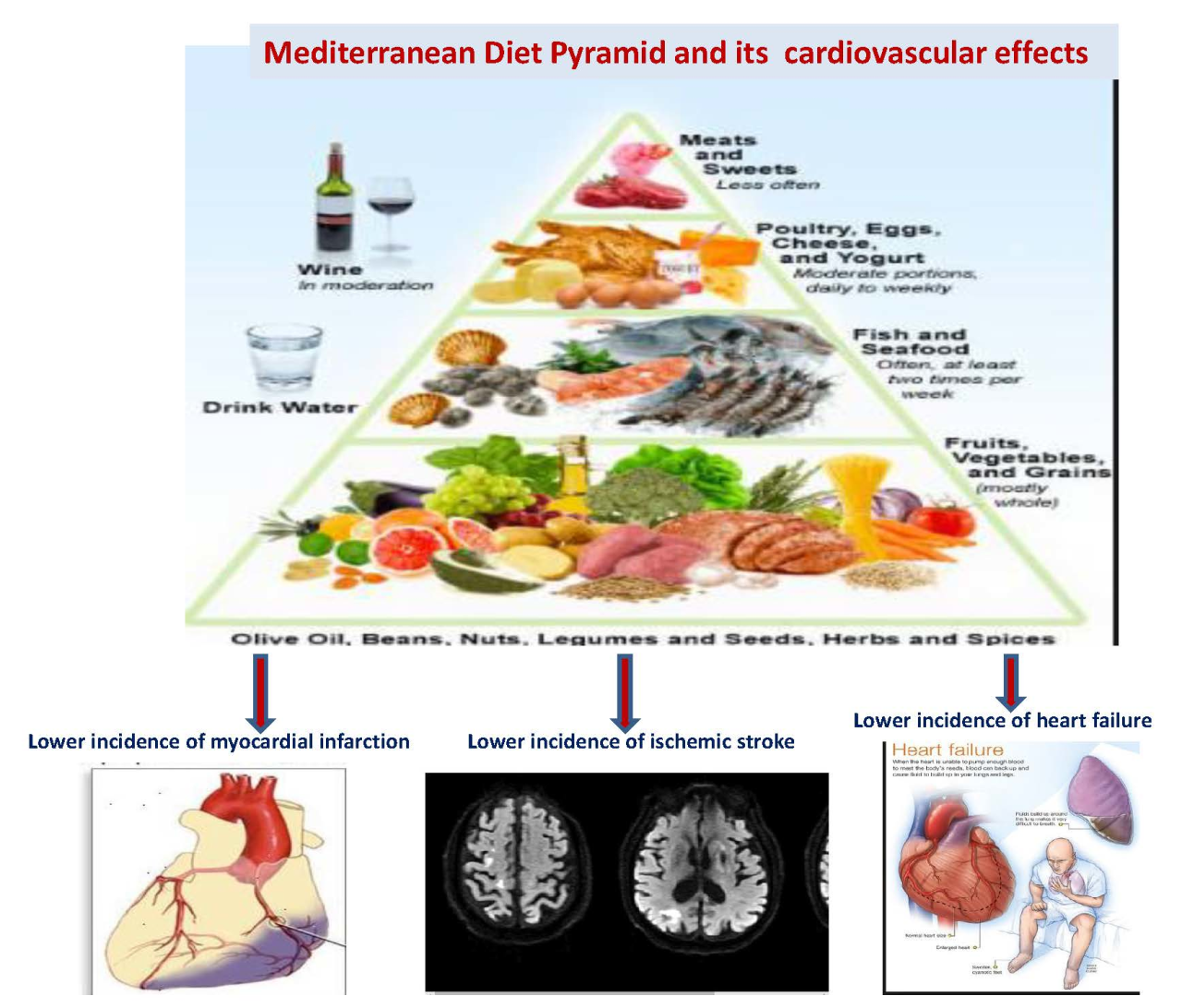
Source: mdpi-res.com
The intricate relationship between our gut microbiome and brain function is a burgeoning field of research, revealing fascinating pathways through which the trillions of bacteria residing in our digestive system can significantly impact cognitive processes, including memory. This connection isn’t simply a correlation; research strongly suggests a direct causal link, with specific mechanisms mediating the influence of gut health on our ability to learn, remember, and recall information.The gut-brain axis, a complex bidirectional communication network, facilitates this interplay.
This communication involves various pathways, including the vagus nerve, the immune system, and the production of bioactive metabolites by gut bacteria. Understanding these pathways is crucial for developing targeted interventions to improve cognitive health through dietary and lifestyle modifications.
So, a new study shows the Mediterranean diet is amazing for gut health and memory – who knew?! It makes you wonder about other preventative measures, like early detection of cognitive decline. I was reading this fascinating article about how an eye test might help predict dementia risk – check it out: can eye test detect dementia risk in older adults.
Getting back to that Mediterranean diet, though, it seems like a simple change with potentially huge benefits for brain health!
Short-Chain Fatty Acids and Cognitive Processes
Short-chain fatty acids (SCFAs), primarily acetate, propionate, and butyrate, are produced by the fermentation of indigestible carbohydrates by gut bacteria. These SCFAs are not just byproducts of digestion; they act as crucial signaling molecules influencing various physiological processes, including brain function. Butyrate, for example, serves as the primary energy source for colonocytes (cells lining the colon) and is also known to exert anti-inflammatory effects in the gut and potentially the brain.
Propionate is involved in glucose metabolism and can influence satiety, indirectly impacting overall health and potentially cognitive function. Acetate can cross the blood-brain barrier and has been shown to improve memory performance in animal studies. The precise mechanisms through which these SCFAs influence cognitive processes are still being investigated, but evidence suggests they may act through multiple pathways, including modulation of neuroinflammation and neurotransmitter production.
For instance, butyrate can inhibit histone deacetylases (HDACs), impacting gene expression in the brain and potentially influencing neuronal plasticity and synaptic function.
Gut-Brain Communication via the Vagus Nerve and Immune System
The vagus nerve, the longest cranial nerve, forms a crucial part of the gut-brain axis, transmitting signals bidirectionally between the gut and the brain. Changes in gut microbiota composition can influence vagal nerve activity, impacting brain function. For example, an imbalance in gut microbiota (dysbiosis) can lead to increased inflammation, which can be communicated to the brain via the vagus nerve, potentially contributing to cognitive impairment.Furthermore, the immune system plays a significant role in gut-brain communication.
The gut contains a large proportion of the body’s immune cells, and its response to the gut microbiota influences systemic inflammation. Chronic low-grade inflammation, often associated with gut dysbiosis, can contribute to neuroinflammation, a key factor in the development of neurodegenerative diseases and cognitive decline. The immune system’s communication with the brain occurs through various pathways, including the release of cytokines, signaling molecules that can cross the blood-brain barrier and influence neuronal function.
Inflammatory Markers and Cognitive Decline
Several inflammatory markers are implicated in cognitive decline. Elevated levels of cytokines like TNF-α, IL-1β, and IL-6 are consistently associated with increased risk of neurodegenerative diseases like Alzheimer’s disease. These inflammatory markers can damage neurons and disrupt synaptic plasticity, impairing cognitive function. Dietary patterns significantly influence the levels of these inflammatory markers. A diet high in processed foods, saturated fats, and sugar promotes gut dysbiosis and increases systemic inflammation, while a diet rich in fruits, vegetables, and healthy fats, like the Mediterranean diet, has been shown to reduce inflammation and improve gut microbiota composition.
The resulting improvement in gut health then translates to a decrease in circulating inflammatory markers, potentially mitigating the risk of cognitive decline. For example, studies have shown that individuals adhering to the Mediterranean diet exhibit lower levels of circulating inflammatory markers compared to those consuming a Western-style diet.
Specific Nutrients and Their Cognitive Benefits
The Mediterranean diet isn’t just a collection of delicious foods; it’s a powerhouse of nutrients that significantly impact brain health and cognitive function. Many studies have linked specific components of this diet to improved memory, sharper focus, and overall enhanced cognitive abilities. Let’s delve into the science behind these remarkable benefits.The remarkable cognitive benefits associated with the Mediterranean diet are largely attributed to its rich array of vitamins, minerals, antioxidants, and healthy fats.
These nutrients work synergistically to protect brain cells, reduce inflammation, and improve communication between brain regions, all contributing to better cognitive performance.
Omega-3 Fatty Acids and Brain Function
Omega-3 fatty acids, particularly EPA and DHA, are crucial components of brain cell membranes. They play a vital role in maintaining the structure and function of these membranes, influencing their fluidity and impacting the transmission of nerve impulses. Studies have shown that individuals with higher levels of omega-3 fatty acids in their blood tend to have better cognitive performance and a reduced risk of age-related cognitive decline, including Alzheimer’s disease.
So, a new study shows the Mediterranean diet is amazing for your gut and memory – seriously, it’s a game-changer! It got me thinking about long-term health choices, and how prioritizing wellness now impacts the future, like Karishma Mehta’s decision to freeze her eggs – check out the article on the risks involved here: karishma mehta gets her eggs frozen know risks associated with egg freezing.
Ultimately, making informed choices about your health, whether it’s diet or fertility planning, is key to feeling your best for years to come, and that Mediterranean diet is looking pretty good right now.
For instance, a study published in the journalNeurology* found that higher intakes of omega-3 fatty acids were associated with a slower rate of cognitive decline in older adults. The fatty fish prevalent in the Mediterranean diet, such as salmon, tuna, and sardines, are excellent sources of these essential fatty acids.
Antioxidants and Protection Against Oxidative Stress
Oxidative stress, caused by an imbalance between free radicals and antioxidants, is implicated in the development of neurodegenerative diseases. The Mediterranean diet is abundant in antioxidants, including vitamins C and E, as well as various polyphenols found in fruits, vegetables, and olive oil. These antioxidants combat free radicals, protecting brain cells from damage and reducing the risk of cognitive decline.
For example, Vitamin E, found in abundance in olive oil and nuts, is a potent antioxidant that protects cell membranes from oxidative damage. Similarly, the polyphenols in olive oil and red wine have been shown to have neuroprotective effects.
Vitamins and Minerals: Essential for Cognitive Health
Several vitamins and minerals play critical roles in brain health. Vitamin B12, found in fish and eggs, is essential for the production of myelin, a protective sheath around nerve fibers that facilitates efficient nerve impulse transmission. A deficiency in B12 can lead to cognitive impairment. Similarly, folate (vitamin B9), abundant in leafy green vegetables, is crucial for the synthesis of neurotransmitters, chemicals that enable communication between brain cells.
Other essential minerals, like iron and zinc, also contribute to optimal cognitive function. Iron is necessary for oxygen transport to the brain, while zinc is involved in various neurological processes.
Nutrients in Mediterranean Foods and Their Roles in Brain Health, Study reveals mediterranean diet can boost your gut and sharpen memory
Below is a list of key nutrients found in Mediterranean foods and their respective roles in brain health:
- Omega-3 Fatty Acids (EPA & DHA): Found in fatty fish, improve brain cell membrane function, reduce inflammation, and protect against cognitive decline. Impact: Memory, focus, overall cognitive function.
- Antioxidants (Vitamins C & E, Polyphenols): Found in fruits, vegetables, olive oil, and nuts; combat free radicals, protect brain cells from damage, and reduce oxidative stress. Impact: Memory, focus, overall cognitive function.
- Vitamin B12: Found in fish and eggs; essential for myelin production, crucial for nerve impulse transmission. Impact: Overall cognitive function.
- Folate (Vitamin B9): Found in leafy green vegetables; crucial for neurotransmitter synthesis. Impact: Memory, focus.
- Iron: Found in legumes, spinach; essential for oxygen transport to the brain. Impact: Overall cognitive function.
- Zinc: Found in nuts, seeds, legumes; involved in various neurological processes. Impact: Memory, focus, overall cognitive function.
Study Design and Methodology
Unraveling the complex interplay between the Mediterranean diet, gut health, and cognitive function requires rigorous research designs. Studies investigating this relationship have employed a variety of methodologies, each with its strengths and limitations. Understanding these methodological approaches is crucial for interpreting the findings and guiding future research.Many studies utilize observational designs, often cohort studies, where participants are followed over time to assess dietary intake, gut microbiota composition, and cognitive performance.
These studies can reveal associations between the Mediterranean diet, gut microbiome diversity, and cognitive outcomes, but they cannot establish causality. Randomized controlled trials (RCTs), the gold standard for establishing causality, are less common in this area due to the logistical challenges of manipulating dietary habits and accurately measuring gut microbiome changes over extended periods. However, some RCTs have investigated the effects of specific dietary interventions, such as supplementing with prebiotics or probiotics, on cognitive function and gut microbiota composition.
Study Designs Employed to Investigate the Link Between the Mediterranean Diet, Gut Health, and Memory
Observational studies, particularly prospective cohort studies, are frequently used. These studies track individuals over time, collecting data on their dietary habits, gut microbiota composition through fecal sampling and analysis (e.g., 16S rRNA gene sequencing), and cognitive performance using standardized neuropsychological tests. This approach allows researchers to examine correlations between dietary patterns, gut microbial diversity, and cognitive decline or improvement.
However, these studies are limited by their inability to establish direct cause-and-effect relationships. Confounding factors, such as age, lifestyle, and pre-existing health conditions, could influence the observed associations. Conversely, randomized controlled trials (RCTs) are less common due to the difficulties in controlling dietary intake and the long-term nature of cognitive changes. These trials randomly assign participants to different dietary interventions (e.g., Mediterranean diet versus control diet) and monitor changes in gut microbiota and cognitive function over time.
While RCTs provide stronger evidence of causality, they can be expensive and time-consuming. Intervention studies involving supplementation with specific prebiotics or probiotics also contribute to understanding the role of the gut microbiome in cognition.
Methods for Assessing Gut Microbiota Composition and Cognitive Function
Assessing gut microbiota composition typically involves analyzing fecal samples using high-throughput sequencing techniques, such as 16S rRNA gene sequencing, to identify the different bacterial species present and quantify their abundance. Metagenomics, which involves sequencing all the DNA in a sample, can provide a more comprehensive view of the gut microbiome’s functional capacity. Cognitive function is usually assessed using a battery of neuropsychological tests designed to measure various cognitive domains, including memory, attention, executive function, and processing speed.
These tests can range from simple tasks, such as recalling word lists, to more complex tasks, such as performing spatial reasoning exercises. The choice of tests depends on the specific cognitive aspects of interest and the age and health status of the participants.
Challenges in Conducting Research on the Gut-Brain Axis and Potential Improvements
Research on the gut-brain axis faces several challenges. Firstly, the gut microbiome is highly complex and variable, influenced by numerous factors such as genetics, diet, lifestyle, medication use, and environmental exposures. Standardizing data collection and analysis methods across studies is crucial to ensure comparability and reproducibility. Secondly, the time lag between dietary changes, alterations in the gut microbiome, and observable effects on cognitive function can be significant, making it difficult to establish clear temporal relationships.
So, a new study shows the Mediterranean diet is amazing for your gut and memory – seriously, it’s a brain booster! It got me thinking about how crucial overall health is, and that reminded me of this incredible breakthrough: the FDA just approved clinical trials for pig kidney transplants in humans, as you can read about here: fda approves clinical trials for pig kidney transplants in humans.
It’s fascinating how advancements in different areas of health are interconnected; a healthy gut, supported by a diet like the Mediterranean one, could even improve the success of such a transplant.
Longitudinal studies with frequent assessments are needed to address this. Thirdly, the mechanisms underlying the gut-brain axis are not fully understood, hindering the development of targeted interventions. More research is needed to elucidate the specific pathways by which the gut microbiome influences brain function.
Addressing Confounding Factors in Gut-Brain Axis Research
Several factors can confound the relationship between the Mediterranean diet, gut health, and memory. Age is a significant confounder, as both gut microbiome composition and cognitive function naturally change with age. Studies should carefully control for age or stratify analyses by age group. Lifestyle factors, such as physical activity, smoking, and alcohol consumption, can also influence both gut health and cognitive function.
These factors should be assessed and adjusted for in statistical analyses. Pre-existing health conditions, such as cardiovascular disease and diabetes, can affect both gut microbiome composition and cognitive function. Matching participants for health status or including health status as a covariate in statistical models can help mitigate this confounding effect. Genetic factors also play a role in both gut microbiome composition and cognitive function.
Genome-wide association studies (GWAS) can help identify genetic variants that influence these factors, allowing for their inclusion in statistical analyses. Finally, the use of medication can affect gut microbiome composition and cognitive function. Studies should collect information on medication use and adjust for this in analyses. By carefully considering and addressing these confounding factors, researchers can improve the accuracy and reliability of studies investigating the gut-brain axis.
Implications and Future Directions
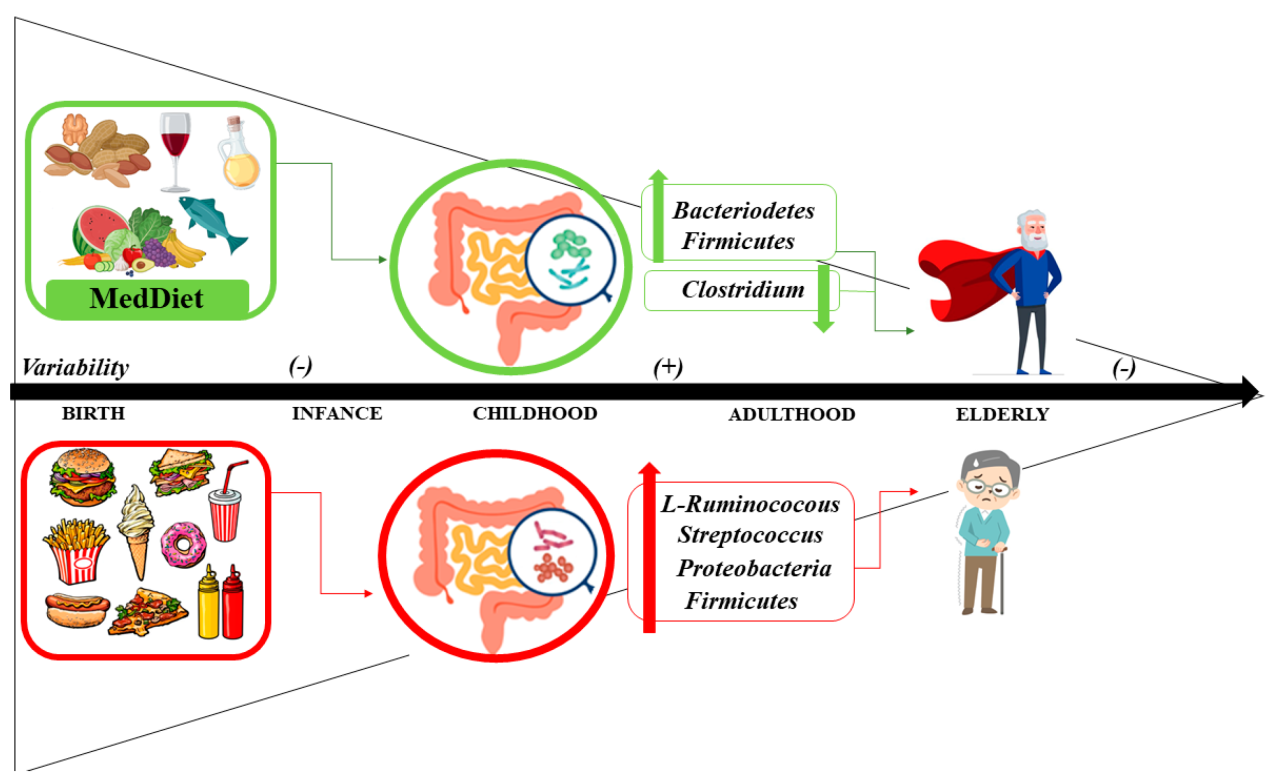
Source: mdpi.com
The groundbreaking revelation that the Mediterranean diet significantly enhances gut health and sharpens memory carries profound implications for public health and future research. Understanding the intricate interplay between diet, gut microbiota, and cognitive function opens doors to innovative strategies for preventing cognitive decline and promoting overall brain well-being, particularly as populations age. This knowledge empowers individuals to make informed dietary choices to support their cognitive health proactively.This study’s findings suggest a practical path towards improving brain health.
By emphasizing plant-based foods, healthy fats, and moderate consumption of fish and poultry, individuals can foster a gut microbiome conducive to cognitive function. This isn’t just about avoiding specific foods; it’s about embracing a lifestyle change that nourishes both the gut and the brain. The positive effects are likely cumulative, meaning the longer one adheres to a Mediterranean-style diet, the greater the potential benefits for cognitive health.
Practical Recommendations for Dietary Incorporation
Adopting a Mediterranean diet doesn’t require a complete overhaul of one’s eating habits. Gradual integration of key elements can yield significant results. For example, replacing processed snacks with fruits and vegetables, incorporating olive oil as the primary cooking fat, and including a variety of nuts and seeds in the diet are simple yet effective steps. Increasing fish consumption while reducing red meat intake also aligns with the principles of this dietary pattern.
A balanced approach, focusing on whole, unprocessed foods, is crucial for optimal results. Consider substituting refined grains with whole grains, and prioritizing legumes as a source of protein. Regular consumption of yogurt with live and active cultures can further support a healthy gut microbiome.
Areas for Future Research
While this study provides compelling evidence, further research is crucial to solidify these findings and explore unanswered questions. Longitudinal studies tracking the effects of the Mediterranean diet on cognitive function over extended periods are needed to establish a clearer causal relationship. More research is also required to identify the specific bacterial strains within the gut microbiome that are most strongly associated with cognitive benefits.
This knowledge could lead to the development of targeted interventions, such as probiotic supplements, to enhance the positive impact of the Mediterranean diet. Investigating the mechanisms by which specific nutrients interact with the gut microbiota to influence cognitive function warrants further exploration. For example, the role of polyphenols found in abundance in Mediterranean foods in modulating gut microbial composition and their subsequent effect on the brain-gut axis requires deeper investigation.
Finally, research should examine the potential benefits of the Mediterranean diet across different populations and age groups to determine its efficacy and adaptability. Understanding potential variations in response based on genetic predispositions or existing health conditions will be crucial for personalized recommendations.
Final Thoughts
In conclusion, the evidence increasingly points to a powerful link between the Mediterranean diet, a healthy gut microbiome, and improved cognitive function. While more research is needed to fully unravel the complexities of the gut-brain axis, the potential benefits are undeniably compelling. Embracing the Mediterranean diet isn’t just about following a trendy eating plan; it’s about investing in your long-term brain health and overall well-being.
By nourishing your gut, you may be paving the way for a sharper, healthier mind. So, go ahead, indulge in those delicious olives, vibrant vegetables, and healthy fats – your brain will thank you for it!
General Inquiries
What are some easy ways to incorporate the Mediterranean diet into my daily life?
Start small! Swap processed foods for whole grains, add more fruits and vegetables to your meals, use olive oil as your primary cooking fat, and incorporate more fish into your diet. Experiment with new recipes and find ways to enjoy the delicious flavors of the Mediterranean.
Are there any downsides or risks associated with the Mediterranean diet?
For most people, the Mediterranean diet is safe and healthy. However, individuals with specific dietary restrictions or allergies should consult a doctor or registered dietitian before making significant dietary changes.
How long does it take to see noticeable benefits from following the Mediterranean diet?
The timeframe varies from person to person. Some people report feeling improvements in energy and digestion relatively quickly, while noticeable cognitive benefits may take longer to appear. Consistency is key!
